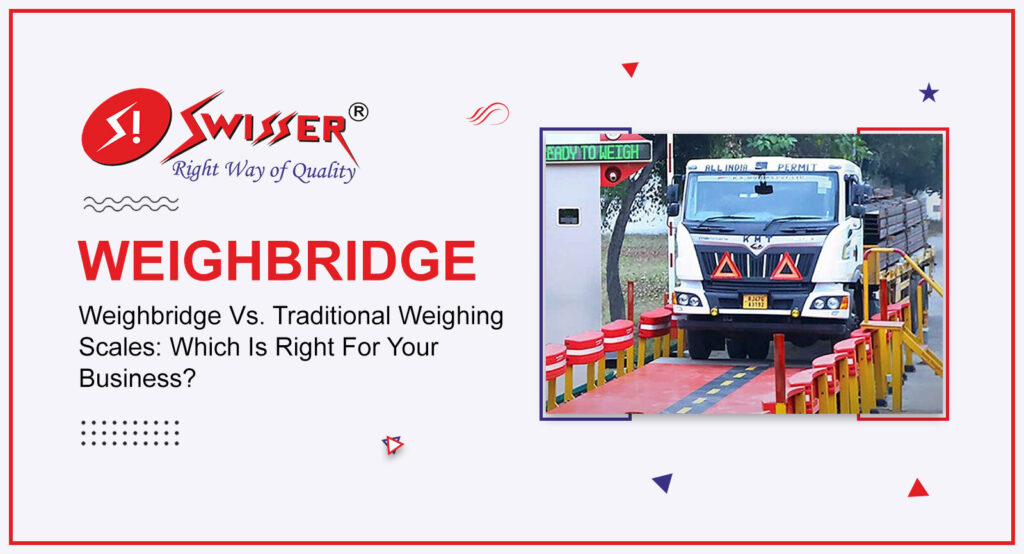HomeBlogWeighbridgeWeighbridge vs. Traditional Weighing Scales: Which is Right for Your Business?
Weighbridge vs. Traditional Weighing Scales: Which is Right for Your Business?

Weighing to the nearest tenth of a pound is essential in the logistics and supply chain management industries. In order to comply with rules and facilitate efficient distribution, commodities are weighed using weighing equipment. Weighbridge and standard weighing scales account for the vast majority of weighing devices in use today. Which of weighbridges and conventional weighing scales is best for your company, and why, will be discussed in this article.
Overview: Weighbridges
A weighbridge is an expansive weighing platform used to measure the mass of huge vehicles, trailers, and containers. The platform is equipped with a number of load cells, which calculate the load’s mass as it crosses the platform. Industries where the weight of items is crucial to the performance of the operation often employ weighbridges, such as construction, mining, and agriculture.Weighbridge Benefits
- Weighbridges are useful for uses where precision is essential due to their great accuracy; they can measure weight to within a few kilogrammes.
- Weighbridgeis a worthwhile investment since they can endure significant stress for an extended period of time.
- Weighbridges are helpful for enterprises that carry large items since they may be used to weigh a wide range of vehicles and equipment.
Weighbridge Drawbacks
- Weighbridges are a costly investment due to their high initial cost and ongoing repair and upkeep requirements.
- Weighbridges have large footprints, which may be problematic for enterprises with limited floor space.
- Because each vehicle must be driven onto the platform and weighed separately, using a weighbridge may be time-consuming.
Conventional Scales for Weighing
When compared to weighbridges, traditional weighing scales are more compact and mobile, making them suitable for weighing lighter loads like boxes, bags, and individual items. Traditional weighing scales come in many forms, such as counting scales, floor scales, and bench scales. Traditional weighing scales see widespread usage in many settings, including those dealing with industrial, retail, and the food processing sectors.Traditional weighing scales benefits
- Weighbridges might be prohibitively costly for a small firm, while traditional weighing scales are more reasonable.
- Weighbridges are bulkier and more difficult to relocate, whereas traditional weighing scales are more compact and mobile.
- Traditional scales are among the most user-friendly options available, with many versions boasting straightforward buttons and displays.
Traditional weighing scales drawbacks
- Traditional weighing scales may not be suited for uses where accuracy is essential, since they are not as precise as weighbridges.
- Conventional scales may not be as long-lasting as weighbridges and may require more regular servicing and repairs.
- Traditional weighing scales have a limited weight capacity, making them unsuitable for weighing heavier objects.
